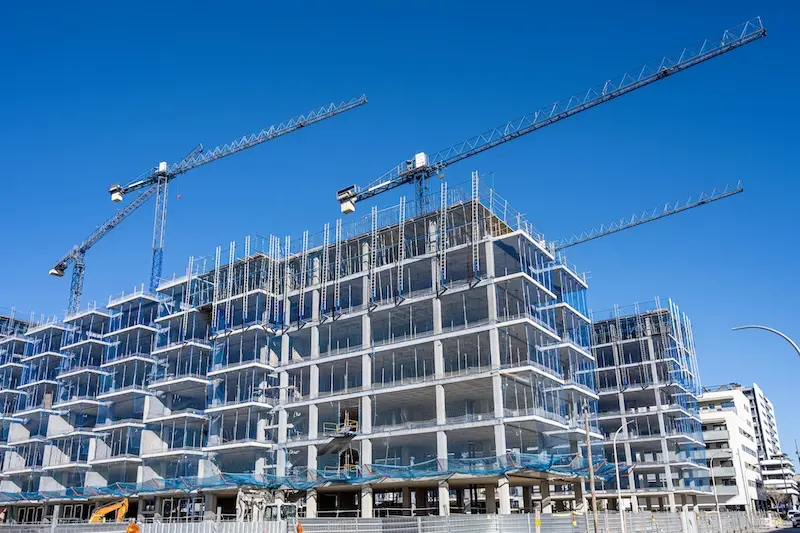
Avoid Inadequate Cover With Insurance For Property Developers In Ireland
Property development brings complex, high-stakes risks, and insurance for property developers in Ireland often fails to reflect these adequately.
Crafting a thorough insurance strategy is vital for developers to avoid major financial setbacks, contract disputes or reputational damage. However, standard construction cover often leaves key exposures unaddressed.
Let’s outline the most common insurance gaps for property developers and how to avoid them.
5 crucial types of insurance for property developers
Comprehensive protection for property developers typically includes:
1. Liability insurance
Public liability and employers’ liability cover injuries or property damage claims and are essential for any site with personnel or public interaction.
2. Contractors’ all risks (CAR) insurance
CAR covers ongoing works, materials and equipment and should be flexible enough to suit phased or complex builds.
3. Personal accident insurance
This type of cover provides financial support in the event of serious employee injury or disablement.
4. Plant, machinery & equipment insurance
This protects plant and machinery that is both owned and hired in, while in operation or at rest.
5. Professional indemnity insurance
PII safeguards against liability for design errors, omissions or improper advice.
Each of these insurance types forms part of a comprehensive insurance policy for development projects. If any element is omitted, you run the risk of securing inadequate cover.
4 reasons for inadequate cover
Many developers assume that basic construction insurance is enough to cover the scope of their projects, but this mistaken assumption can trigger several additional problems. Here are the main reasons why property developers may come face-to-face with inadequate cover:
1. You make assumptions about general liability
While public liability covers third-party claims, it does not protect against design faults, subcontractor disputes or contract-related exposures. It is therefore a mistake to rely on just public liability insurance.
Expert tip: Work with a broker who understands development contracts and can help you assess broader professional and site risks.
2. You neglect to read any exclusions in the fine print
While hidden policy exclusions reduce the cost of premiums, they also reduce the extent of cover that a policy provides. Many developers discover too late that certain activities, materials or machinery weren’t covered under the original policy, either because they opted for a cheaper level of cover or they didn’t accurately understand the exclusions.
Expert tip: Ask your broker to review policy wording line by line and translate technical exclusions into real-world implications for your business.
3. You overlook design and construction risks
Property developers often don’t realise that there are different classifications for full-time employees, independent contractors and subcontractors. This means that if your business is involved in design-and-build, even if this element is outsourced, you are exposed to claims around advice, specification or technical errors.
Expert tip: Review the status of all personnel working on the project, ensuring design and construction professional indemnity is included if you provide or subcontract any design work.
4. You fail to update the cover as projects evolve
Your insurance policy must keep pace with any changes to relevant projects. Hiring new subcontractors, extending timelines or adding works can all create gaps in coverage if not reported.
Expert tip: Notify your broker of any project changes as soon as possible. They can then adjust your cover and avoid complications in the event of a claim.
Two last considerations
Here are two further considerations when reviewing or renewing your policy:
- Review your full risk profile at the start of each project to ensure that the scope of your cover evolves with every new job.
- Don’t forget additional cover such as motor fleet insurance, construction bonds or credit insurance, which can be particularly advantageous if you’re working across multiple sites or stages.
Consult with an expert insurance broker with extensive experience in your sector to prevent gaps in your coverage.
Avoid inadequate coverage with our insurance for property developers
The team at ERM Financial Services offers practical advice that encompasses everything from policy design to claims resolution.
We work with Irish property developers to build tailored construction insurance policies. We liaise directly with insurers, manage cover adjustments mid-project, and offer fast, reliable claims support.
Every project carries risk, but with the right insurance, you will be prepared rather than exposed.
Contact us today to review your current cover or build protection around your next development.


